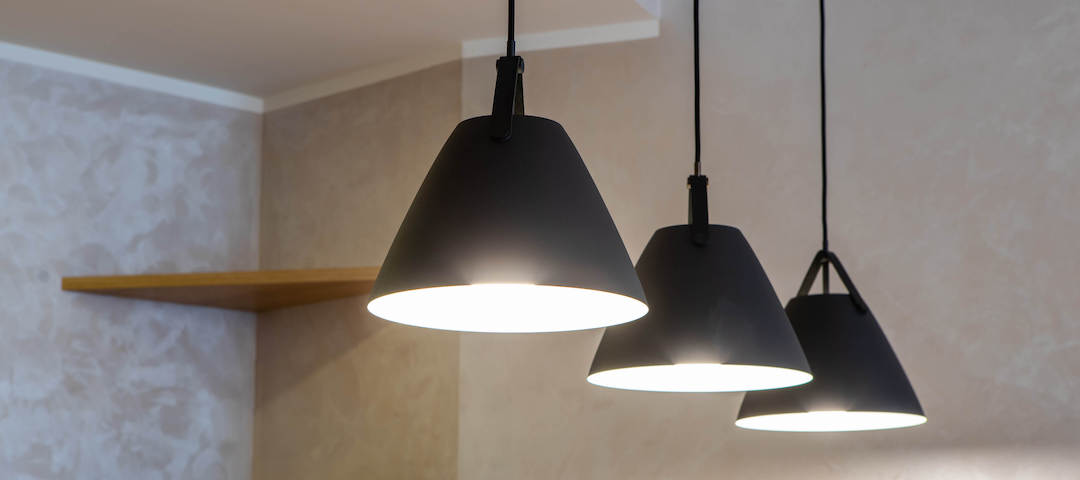Have you noticed your lights flickering at home lately? If yes, no need to panic. This is a common issue many homeowners will see. A single flickering light could be due to something as simple as a loose bulb, but if lights are flickering throughout your home, you could have more serious issues with your home’s wiring.
Six reasons your lights could be flickering at home
- Bulb issues
- Loose connections
- Voltage fluctuations
- Overloaded circuits
- Faulty switches or dimmers
- Wiring problems
Bulb issues
A flickering light could easily be the result of a faulty bulb. Over time, the filament inside incandescent lightbulbs can wear out, causing a decrease in the power supply which would cause the bulb to flicker. On the other hand, a mismatched bulb could also be the culprit. You might see this with a dimmer switch since not all bulbs are designed to work with that kind of switch. Whether it is a faulty or mismatched bulb, swap it out for a new one that matches the fixture switch, and the flickering should stop.
Loose connections
If the bulb isn’t the issue, there is a chance you could be dealing with a loose connection. The bulb could be loose in the socket, or a loose wire connection in the electrical circuit can cause flickering. Check and tighten all connections to ensure they are secure in the socket. If the problem persists, you may need to inspect the wiring connections. Turn off the power to the circuit and inspect the connections to ensure they are tight. If you are uncertain about working with electrical connections, getting assistance from a licensed electrician is best.
Voltage fluctuations
Things like power grid issues or power fluctuations caused by appliances can affect the voltage supplied to your home. Large appliances like air conditioners, refrigerators, or washing machines use significant amounts of power when they turn on and off, leading to brief drops in voltage and causing lights to flicker.
Signs of severe voltage fluctuation include:
- Lights flickering or dimming when you switch on large appliances
- Flickering continues even after you have turned the appliance off
- Lights switch to dim at unexpected times
- Light bulbs burn out more quickly than normal
- Appliances or electronics shutting off or malfunctioning
If you suspect voltage fluctuations, you might want to consider installing a voltage stabilizer.
Overloaded circuits
When multiple appliances or devices are plugged in and on at the same time, there is a possibility that the circuit could become overloaded. Large appliances use a lot of energy when they start up and run. You might experience your lights flickering when you turn on your dishwasher or microwave. If this is the case, the circuit could be overloaded you may need to upgrade or install new electrical circuits in these areas.
Faulty switches or dimmers
If the light is controlled by a switch or a dimmer, a faulty or worn-out switch could be why it flickers. If the switch isn’t making proper electrical contact, it could lead to intermittent power supply to the light. Similarly, if you are using the wrong bulb with a dimmer switch, flickering can result.
Wiring problems
Outdated or faulty wiring can also lead to flickering lights. Over time, wiring may deteriorate due to wear and tear or improper installations. Faulty wiring can cause a lot more problems than just flickering lights. If you suspect your lights are flickering because of wiring problems, contact a licensed electrician as soon as possible. If left unserviced, outdated or faulty wiring could cause electrical shock, damage to your appliances and devices, or worse, an electrical fire.
If you need help finding the root cause of your flickering lights, we can help! With over 60 years of combined experience, our team can guide and support you through any electrical needs. Contact us today!


